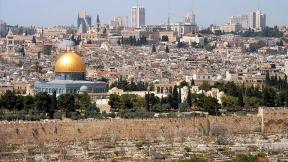
The month of Rabi-al-Awwal is a time for Muslims to reflect upon the Mercy and Blessings that Allah bestowed upon humanity, especially by giving inspiration to Prophet Muhammad (SAW). It was during the month of Rabi-al-Awwal that the prophet (pbuh) was born, passed away and made hijrah from Makkah to Madinah. Even though Rabia-al-Awwal is not one of the sacred months in Islam, because of the major life experiences of the prophet (SAW), it is worthy of note and remembrance.
In the seerah we have accounts of his life, including his challenges and successes. Allah as Al-Wadud, The Loving blessed us with the example and experiences of Prophet Muhammad (SAW) that we can refer to as lived guidance for our lives and affairs. During times of societal strife, the hardships endured by the early Muslims and the prophet (pbuh) serve as both examples and reassurances to the modern Muslim of how to respond to current affairs.
As Muslims in America grow concerned with governmental policies that may have a negative impact on them as a religious minority as well at them as ethnic minorities and immigrants, we are reminded that oppression by the state has existed in every society. During the prophetic age, the Quraysh tribe found the new teachings of equality and the oneness of God that Muhammad, the prophet (pbuh) brought to be an intolerable message. Besides going against the societal beliefs, it was bad for business. The early Muslims in Makkah were subjected to the worst oppression. They were shunned and basically blacklisted in society, presented as a problem. The economic boycott imposed by the Quraysh was also devastating. When we look at seerah we see that this escalated to the torture and murder of Muslims, the greatest trial indeed.
Oppressive policies and decrees from the state are always distressing. In the current political environment of the United States, we see the government overreach with the establishment of military groups in Washington, DC and a projection to expand into other cities. The National Guard presence is touted as peace keeping and curbing crime, but recent media reports reveal that the National Guard is also engaged in immigrant enforcement operations. This targeting of immigrants began with National Guard troops in Los Angeles for what was really a small protest and is now being floated as a means to curb immigrant presence in Chicago and perhaps Texas. Anti-immigration and discrimination towards religious, racial, national origin minorities in the U.S. typically go hand in hand and have escalated into violence: “Bloody Monday” riots against Catholic immigrants in 1855, Chinese immigrant massacres of 1871, New Orleans Italian lynchings in 1871. Not the mention the systemic racism against people of African descent.
Muslims are disheartened by the current xenophobia, but we understand that oppression is a disliked thing that we ourselves should never accept.
Allah does not love the oppressors.
[Surah Al-Imran 3:140]
The Prophet told us that Allah says, “O My slaves, I have forbidden zulm (injustice, wrongdoing, unfairness) to Myself and I have made it haram (forbidden) amongst you, so do not wrong one another.”
[Hadith Qudsi, narrated by Muslim]
And think not that Allah is unaware of what the oppressors do. He only grants them respite until the day the eyes will stare in horror.
[Surah Ibrahim14:42]
American Muslims must respond with the same patience that we found in the example of Prophet Muhammad (SAW). There are also logical and safe ways to respond to oppression. There is no way to know if friends, family members or who the next immigrant or minority group will be targeted and approached by the federal troops or the police during this time, but there are ways to respond that are helpful.
- MAKE DU’A – Know that Allah is in charge of everything
- Know community resources and civil rights organizations in your area. Keep their phone number handy.
- Know your rights as an American citizens
- Stay calm and listen intently to what is being said. This is important so there can be no accusations of obstruction or resistance that can cause an encounter to escalate.
- If approached by the police or the National Guard, the Fifth Amendment allows one to remain silent and not increment themselves.
- Do not provide false information. If your immigration status or the status of someone with you is questionable it is better to remain silent.
- It is legal to record. This is protected by the First Amendment, so if approached a video record of the conversation and actions can be made as long as the it doesn’t ‘interfere’ with their enforcement.
Author bio: Mahasin D. Shamsid-Deen is the news curator and content manager for Muslim Network TV (MNTV) and contributing writer for Sound Vision. She holds a master’s degree in English writing and has worked as both a High School and College ESL Instructor and Writing Instructor for more than a decade. Mahasin has numerous published articles, books, essays and is a published playwright with three award winning stage plays. She is currently writing her dissertation for her doctoral degree.








Comments
islamic education
This article offers a deeply thoughtful reflection on how the Seerah serves as both solace and guidance when communities face oppression. Drawing strength from the ways the Prophet (SAW) and early Muslims responded to severe trials reminds us: our resilience doesn't mean resignation—it’s rooted in faith, wisdom, and strategic action.
Location
Add new comment